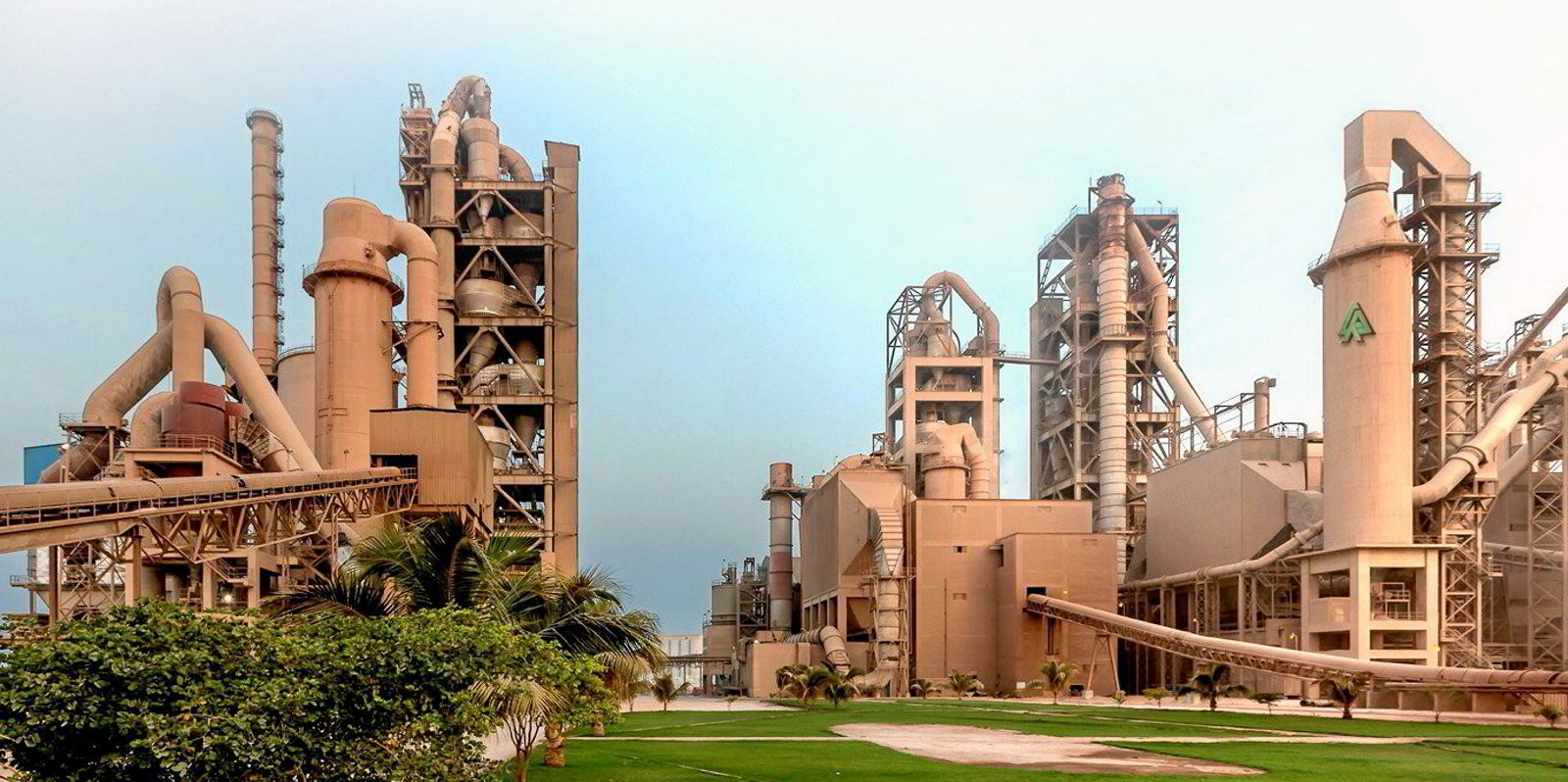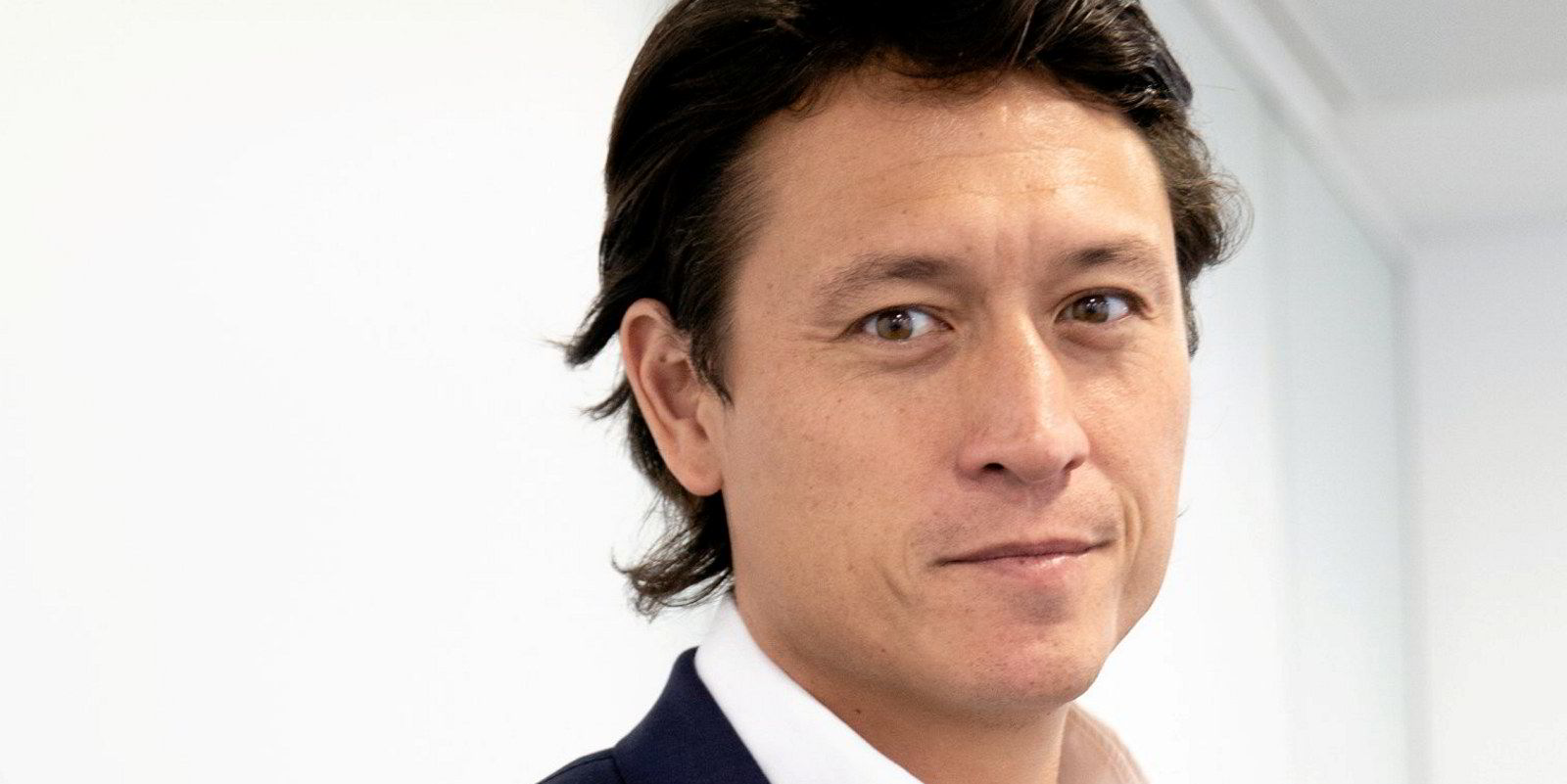Bulker operators are chasing an Omani cement producer for money owed in demurrage and damages, which the company claims were racked up through rogue activity by an ex-employee.
However, the claimants think the cement firm is making excuses to get out of paying its bills. Further review by TradeWinds shows there could be more to the story, raising questions over how Raysut Cement Company clocked up vast bills for demurrage at its own load port.
Emarat, AM Nomikos, Norvic Shipping and Ultrabulk are among the firms that claim they are owed money by Salalah-based Raysut, which had chartered vessels from the operators.
Raysut is also facing claims by cargo receivers whose cement supply contracts have been interrupted.
Information circulated by the cement company points to the actions of a rogue employee, which came to light when a new management team took over.
Raysut, a major cement charterer within the Middle East and Indian Ocean, in September informed its counterparties via brokers that its chartering arm, RCC Trading, fired all its employees in December 2021 and had ceased operating.
It asked its counterparties to check that they had not been instructed to make payments to a Dubai entity called Minti International, which Raysut claims is unconnected.
“Any emails or messages from the said employees are not [the] liability of Raysut,” the company said in the note seen by TradeWinds.
“During the change of management, we found that you were led to believe by an employee of Minti International DMCC, a company no way affiliated to Raysut group, that Raysut is the guarantor for all the vessels chartered by them by means of illegal documents.”
However, TradeWinds understands that freight was paid to at least three bulker operators by Minti, allegedly on behalf of Raysut.
The cement firm has also advised counterparties that its chartering staff did not have the authority to make deals on its behalf.
But in September, brokers for Norvic advised the operator in a note, seen by TradeWinds: “Basis what we know, Ravi Tomar, an employee of Raysut Cement Company Trading DMCC at the time the charterparties were concluded, had actual if not implied authority to charter these vessels.”
Raysut claims RCC Trading ceased operation on 1 April 2021 and its operations were absorbed into the parent company. RCC Trading’s three-year Dubai Multi Commodities Centre business licence expired on 20 May this year and the company has been dissolved.
Ravi Tomar confirmed to TradeWinds that he no longer works for RCC Trading but declined to comment further.
Demurrage questions
Close to $1m of what is being claimed by operators was accumulated in demurrage, much of which was generated at the load port of Salalah, Oman, where Raysut operates its own loading terminal and has its key cement production facility.
Norvic claims it is owed $221,958 from Raysut in load port demurrage for the transport of cement on a supramax in late March from Salalah to Mauritius.
Another bulker operator claims Raysut owes over $275,000 in demurrage and damages relating to a charterparty signed in June.
Almost $219,000 of the claim is undisputed demurrage, just over half of which was incurred at the load port of Salalah and at two discharge ports in the Indian Ocean.
The rest relates to a claim that the berth at the load port was unsafe because swells caused the owner to incur costs for items such as new ropes.
Business licence information filed with the United Arab Emirates’ Ministry of Economy shows that two entities named Minti International DMCC were established in the Dubai Multi Commodities Centre (DMCC) free zone on 7 July this year. Both are still listed as active.
One entity states that it is engaged in “marketing management”, management consultancy and investment in industrial enterprises. The other Minti deals in trading cement products, building and construction materials and tools.
“Our in-house shipping department elevates our customer-centricity. Minti International has a sanction of more than 70 ships ranging from 2,500 dwt to 50,000 dwt with more than 10 shipowners every year,” Minti states on its website.
TradeWinds has contacted Minti’s principal, Gopinath Sindhe Jayaram, for comment.
Another operator is owed a sum of less than $250,000 in demurrage, accumulated this year at Salalah while the vessel was undertaking a voyage charter to Mauritius. But freight was paid, as was demurrage generated at the discharge port.
Separately, TradeWinds also understands that Ultrabulk is owed a six-figure sum in balance of freight and demurrages, accumulated over multiple voyages where Raysut was charterer.
At least two bulker operators have commenced arbitration against Raysut in London, but the cement company has not yet engaged with proceedings. TradeWinds understands the claimaints aim to obtain a default award.
Talk in the market stirred in July after Raysut’s former chief executive, Ghose Jotirmoy Pratul Krishna, was taken into custody in India on allegations dating back to December 2017, before he joined Raysut.
His previous company — Binani Cement — is under investigation by India’s Serious Fraud Investigation Office.
Raysut’s internal newsletter states that Krishna resigned in August because he “reached the age of retirement” after four years at the company.
Raysut did not answer calls or respond to requests for comment.
Latest financial filings by Raysut Cement Company show it is deep in the red.
Raysut revised and reissued its third-quarter accounts at the end of November, showing losses that are even more significant than announced previously.
The Raysut group booked a loss of OMR 91m ($236.4m) for the first nine months of 2022. At the start of November, it had reported the nine-month loss at OMR 16.3m. The massive adjustment was made in light of the impairment of goodwill at a subsidiary; adjustments of asset carrying values; plus estimated credit losses for trade receivables.
Raysut said earlier this month that it has incurred significant losses for the early termination of long-term vessel charters.
While presenting to shareholders on 9 November, Raysut officials said the charter terminations were “one of the main reasons” behind its 2022 losses and said the contracts were wound up due to “global changes and Covid situation”. It also claimed that cyclones and “adverse climatic conditions at sea” also impacted the cost of hiring vessels.
Raysut said the terminations had cost around OMR 3.2m each on average.
The presentation outlined Raysut’s new sales strategy, which will be to export on a freight on board (FOB) basis. It said “logistics costs including demurrages will be reducing significantly from Q4 2022 onwards”.
The presentation also states: “Omanis have been promoted to Executive-level positions, e.g. CEO, deputy CEO, heads of sales/export/supply chain/IT/procurement/strategy”. Raysut’s CFO Jitendar Singhvi resigned in early November.
Raysut’s chairman said the firm would not restructure but had adequate support from its banks and financial partners.
It has suspended funding from bonds and is liquidating its subsidiary in Singapore, RCC Holdings Pte.
The subsidiary in March announced its intention to issue $600m in sukuk bonds in two tranches to repay existing bilateral debt, support growth initiatives and to finance acquisitions.
But the bonds do not appear to have been issued and TradeWinds was unable to locate any entity named RCC Holdings Pte registered in Singapore.
However, Raysut Cement Holding Company was incorporated last year and is still listed as active in Singapore.





